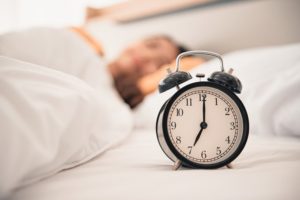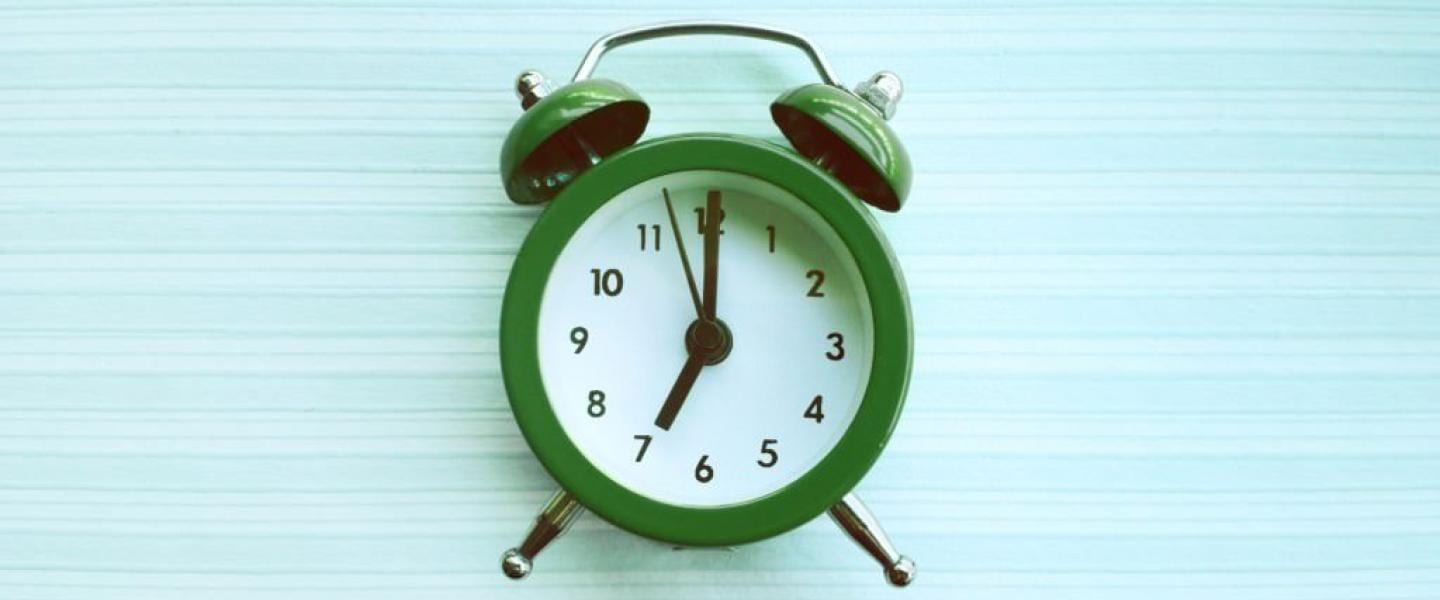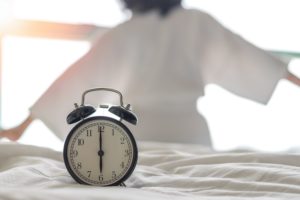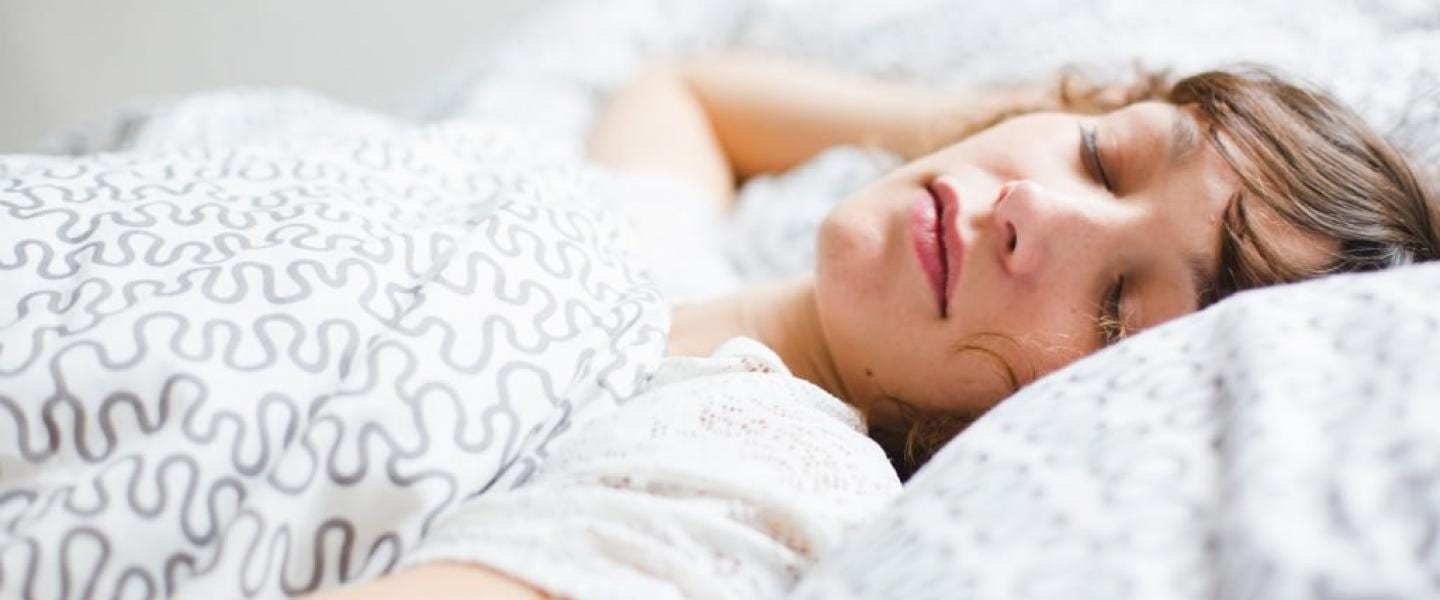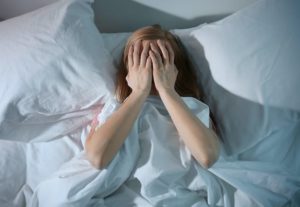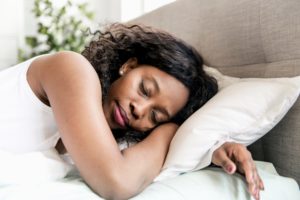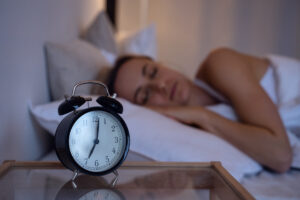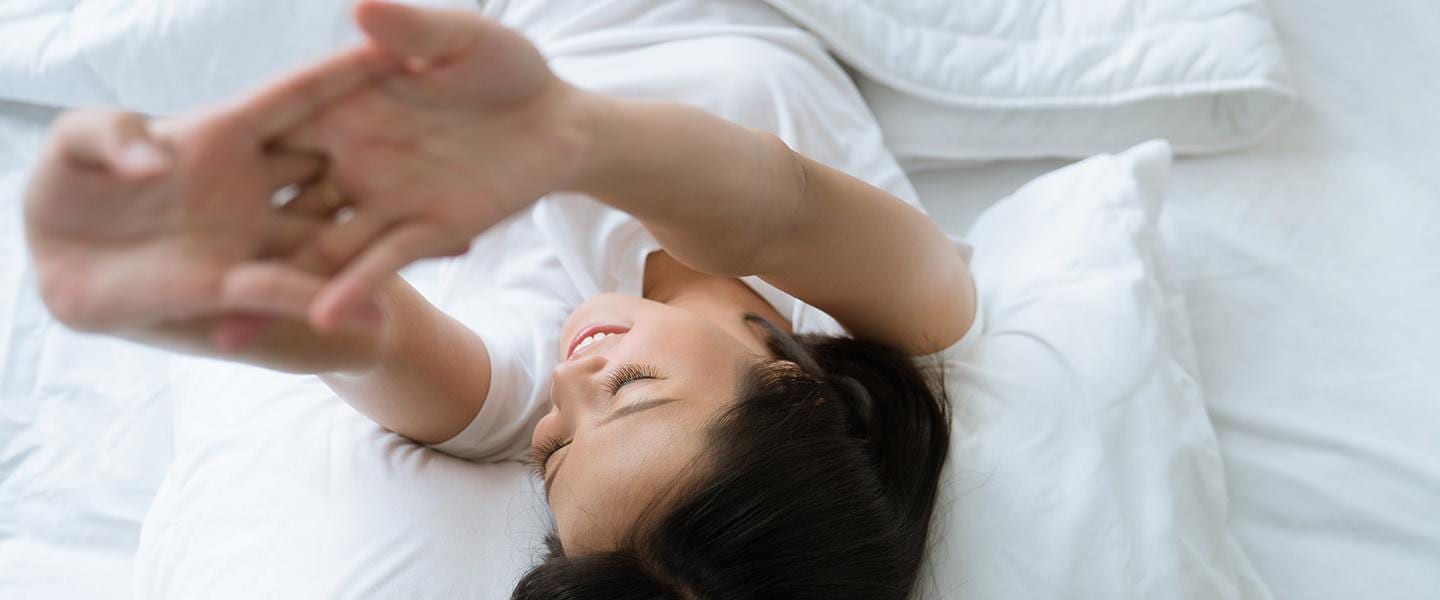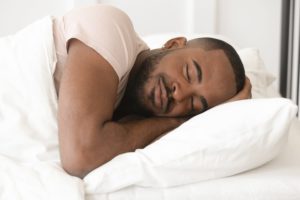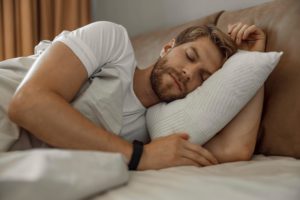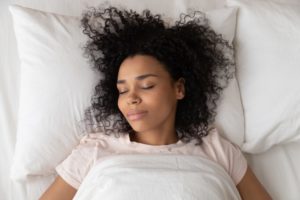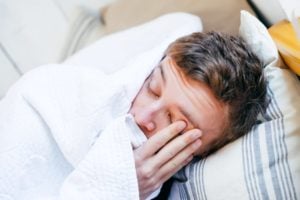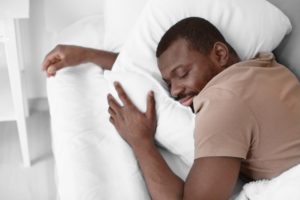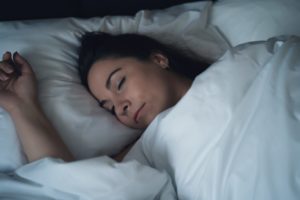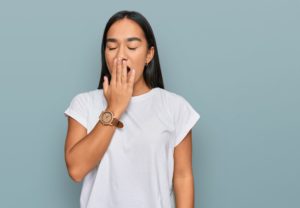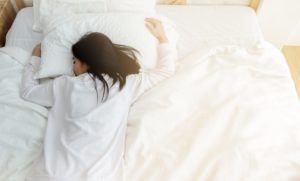When you buy through our links, we may earn a commission. Products or services may be offered by an affiliated entity. Learn more.
Health Benefits of Sleep
At a Glance
Getting enough quality sleep is essential for both mental and physical health. Key benefits of sleep include:
Improved memory, focus, and learning
Better mood and emotional regulation
Stronger immune response
Balanced appetite and metabolism
Reduced risk of chronic conditions like heart disease and diabetes
Faster muscle recovery and tissue repair
Increased energy and daytime alertness
Like eating well, staying hydrated, and exercising regularly, getting enough quality sleep is essential for your overall health. Researchers are still uncovering exactly why we sleep, but one thing’s clear: A full night’s rest delivers a wide range of mental and physical health benefits.
Below, we’ll cover the importance of sleep and how it helps your body and brain, as well as how to get better sleep.
How Sleep Works
Sleep is a complex biological process made up of several stages that cycle throughout the night. These stages include rapid eye movement (REM) sleep and non-REM sleep, each of which plays an important role in restoring the body and brain. Non-REM sleep is especially important for physical repair and immune function, while REM sleep supports memory consolidation, learning, and emotional regulation.
But when sleep is disrupted or cut short, these processes are interrupted, leading to sleep deprivation, which can affect everything from mood and concentration to heart health and immune response.
Health Benefits of Sleep
Over time, consistently good sleep can strengthen your immune system, improve emotional resilience, and support long-term well-being.
Boosts Energy and Alertness
Sleeping well makes it far more likely that you’ll feel rested the next day , allowing you to take on your daily activities with more energy, alertness, and attention.
In contrast, a lack of sleep can make you feel sluggish or even cause you to doze off during the day without meaning to. Daytime sleepiness can lead to poor performance at work or in school, and it also raises the risk of car crashes and other accidents .
Better Mood and Mental Health
Good sleep can be a step toward better mood and mental health. Without enough sleep, you’re more likely to feel irritable, frustrated, anxious, or sad. Research has found that people who get inadequate sleep are at higher risk of experiencing mental distress that detracts from their emotional and mental health .
Facilitates Muscle Repair and Recovery
Sleep is a time for essential rest and recuperation. During a good night’s sleep, your body builds muscle, repairs tissue damage, and regenerates cells . This is partly driven by hormones, including human growth hormone (HGH), which is produced in its highest amounts during sleep.
Supports Heart Health
Quality sleep promotes cardiac health. When you sleep, your heart rate slows down, and your blood pressure decreases . Good sleep can also reduce inflammation that strains the cardiovascular system.
On the flip side, a lack of sleep is a risk factor for cardiovascular problems, including high blood pressure, heart attack, stroke, and heart disease.
Promotes Blood Sugar Control
Studies have shown that good sleep can contribute to better metabolism, including blood sugar regulation and a reduced risk of diabetes .
Blood sugar provides energy to the body, but when blood sugar gets too high, the pancreas produces insulin to keep it under control . Metabolic problems, such as type 2 diabetes, occur when insulin can no longer effectively bring down blood sugar levels.
Deep sleep helps the body’s cells respond to insulin, which may explain why poor sleep has been linked to an increased risk of type 2 diabetes .
Enhances Cognitive Function
Sleep plays a role in memory, focus, and other aspects of thinking and cognition. During sleep, waste is cleared from the brain, paving the way for improved brain function. Research shows that sleeping well supports concentration, learning, and higher-level thinking, such as logical reasoning .
Plus, insufficient sleep negatively impacts judgment. Not getting enough sleep may heighten the risk of making poor decisions because of impaired attention, decreased concentration, and cloudy thinking.
Looking to improve your sleep? Try upgrading your mattress.
Bolsters the Immune System
Getting enough sleep enables the immune system to function more effectively and protect you from illnesses. Research has found that good sleep enables the cells of the immune system to better remember and identify potential threats .
During sleep, your immune system can also combat persistent, low-grade inflammation that plays a role in a number of chronic diseases .
Conversely, a long-term lack of sleep has been linked to higher chances of getting a cold or other viruses. And vaccines have been found to be less effective in people who are chronically sleep deprived.
Supports Stress Relief
Getting the sleep you need every night can help manage stress. Studies suggest that sleep offers relief to brain cells that are under stress. Waking up refreshed may also help reduce feelings of irritability and anxiety that can worsen stress.
Enables Athletic Performance
Good sleep benefits athletes (and non-athletes who enjoy working out), making them more likely to perform at their best. Physical exertion, response time, muscle activation, and endurance are all supported by sufficient sleep .
Sleep is also a key element of athletic recovery , including through the production of growth hormone that enhances tissue repair and muscle growth. Lastly, healthy sleep reduces athletes’ risk of overtraining and injury when competing.
Aids in Healthy Weight Management
Quality sleep—in addition to exercise, stress management, and healthy eating—is an important part of maintaining a healthy weight . A lack of sleep can interfere with the normal production of hormones that help regulate appetite, leading to more hunger that can contribute to weight gain.
How Much Sleep You Need
Most adults need between seven and nine hours of sleep every night to feel alert and gain all the benefits of good sleep .
Sleep needs vary by age, and babies, young children, and teenagers all need more sleep than adults . There is also some individual variation, as some adults may need more or less than seven hours to feel at their best.
Tips for Getting Better Sleep
To get better sleep, start by improving daily habits and nightly routines. Adjustments to your sleep hygiene can be an important step toward getting all the benefits of sleeping well.
Create a Consistent Sleep Schedule
A regular sleep schedule helps the body maintain a consistent internal clock . For that reason, sleep experts recommend going to bed and getting up at the same time each day, including weekends.
Nap Wisely
Short naps during the day may help reduce sleepiness. Keeping naps to about 20 minutes lessens fatigue and makes it less likely you’ll wake up from a nap feeling groggy . In addition, it’s best to avoid napping late in the afternoon, which can make it harder to fall asleep at bedtime.
Create a Sleep-Friendly Bedroom
As a general rule, it’s easiest to get good sleep in a bedroom that’s dark, quiet, and cool . Too much light or noise can make it hard to fall asleep or stay asleep.
If you can’t eliminate external sources of light or noise, there are still steps you can take. An eye mask or blackout curtains can eliminate unwanted light, and earplugs or a white noise machine can reduce distracting noises.
Your sleep environment should include a comfortable and inviting bed. Replacing an old, worn, or uncomfortable mattress with a new and supportive one can help improve your sleep. The best mattresses and pillows for sleep depend on your sleep position, body weight, and personal preferences.
Avoid Caffeine, Nicotine, and Alcohol Before Bedtime
Caffeine, nicotine, and alcohol are commonly used substances that can significantly reduce the quantity or quality of your sleep.
- Caffeine is a stimulant that provides a boost of alertness, and when consumed in the afternoon or evening, caffeine can make it difficult to fall asleep at night.
- Nicotine use in the evening is associated with more nighttime awakenings.
- Alcohol can induce sleepiness, but it actually reduces sleep quality.
Exercise During the Day
Daytime exercise can make it easier to sleep well at night. It can be beneficial to exercise outside, as sunlight exposure during the day may also support good sleep. But avoid working out vigorously too late in the day, because you want your body to be relaxed in the lead-up to bedtime .
Avoid Screens Before Bedtime
Setting electronic devices aside for at least 30 minutes before bedtime can make it easier to fall asleep. Phones, tablets, computers, and other screens stimulate your mind and make it more challenging for your brain and body to wind down at night.
Instead of screen time, sleep experts advise developing a relaxing routine for the hour before bedtime. For this routine, choose a restful activity, such as reading or taking a warm shower or bath, that creates a smooth transition to falling asleep.
Use Sleep Tracking to Spot Patterns
Sleep trackers and apps can help you understand not just how long you sleep, but how well you sleep. By revealing patterns in your sleep duration, disruptions, and overall quality, these tools offer insights that can guide meaningful changes to your bedtime routine.
While sleep trackers aren’t designed to diagnose medical issues, they can play a helpful role in building better sleep habits. Try pairing your device with a quick daily check-in: Do you feel rested and alert, or tired and sluggish? If you’re regularly running on low energy despite spending enough time in bed, it may be time to make some adjustments.
When to Talk to a Doctor About Your Sleep
Although there are steps you can take on your own to improve your sleep, there are times when it’s best to talk with a doctor. For example, consulting with a doctor may be helpful if:
- You have sleep problems that are severe or worsening.
- You have sleep problems that have been bothering you for weeks or months.
- Tiredness or lack of alertness affects your ability to work, concentrate, or perform daily tasks.
- You’ve taken steps to improve your sleep hygiene and still are having sleeping problems.
- You’re looking for personalized guidance about how much sleep you need based on your age and mental and physical health.

Still have questions? Ask our community!
Join our Sleep Care Community — a trusted hub of product specialists, sleep health professionals, and people just like you. Whether you’re searching for the perfect mattress or need expert sleep advice, we’ve got you covered. Get personalized guidance from the experts who know sleep best.
References
20 Sources
-
Kirsch, D. (2023, July 25). Stages and architecture of normal sleep. UpToDate.
https://www.uptodate.com/contents/stages-and-architecture-of-normal-sleep -
Cirelli, C. (2024, May). Insufficient sleep: Definition, epidemiology, and adverse outcomes. In R. Benca & A. Eichler (Ed.). UpToDate.
https://www.uptodate.com/contents/insufficient-sleep-definition-epidemiology-and-adverse-outcomes -
Blackwelder, A., Hoskins, M., & Huber, L. (2021). Effect of inadequate sleep on frequent mental distress. Preventing Chronic Disease, 18.
https://www.cdc.gov/pcd/issues/2021/20_0573.htm -
Patel, A. K., Reddy, V., Shumway, K. R., Araujo, J. F. (2024, January 26). Physiology, sleep stages. StatPearls.
https://www.ncbi.nlm.nih.gov/books/NBK526132/ -
National Center for Chronic Disease Prevention and Health Promotion, Division for Heart Disease and Stroke Prevention. (2021, January 4). How does sleep affect your heart health? Centers for Disease Control and Prevention.
https://www.cdc.gov/heart-disease/about/sleep-and-heart-health.html -
CDC. About Sleep and Your Heart Health. Heart Disease. Published April 24, 2024.
https://www.cdc.gov/heart-disease/about/sleep-and-heart-health.html -
MedlinePlus: National Library of Medicine (US). (2017, January 2). Diabetes.
https://medlineplus.gov/diabetes.html -
Dijk D. J. (2009). Regulation and functional correlates of slow wave sleep. Journal of Clinical Sleep Medicine, 5(2 Suppl), S6–S15.
https://pubmed.ncbi.nlm.nih.gov/19998869/ -
Besedovsky, L., Lange, T., & Born, J. (2012). Sleep and immune function. Pflügers Archiv: European Journal of Physiology, 463(1), 121–137.
https://pubmed.ncbi.nlm.nih.gov/22071480/ -
Cifuentes M, Verdejo HE, Castro PF, et al. Low-Grade Chronic Inflammation: a Shared Mechanism for Chronic Diseases. Physiology (Bethesda). 2025;40(1):0. doi:10.1152/physiol.00021.2024
https://pubmed.ncbi.nlm.nih.gov/39078396/ -
Watson, A. M. (2017). Sleep and athletic performance. Current Sports Medicine Reports, 16(6), 413–418.
https://pubmed.ncbi.nlm.nih.gov/29135639/ -
Halson, S. (2020, May 1). Overtraining syndrome in athletes. In F. G. O’Connor (Ed.). UpToDate.
https://www.uptodate.com/contents/overtraining-syndrome-in-athletes -
Division of Nutrition, Physical Activity, and Obesity, National Center for Chronic Disease Prevention and Health Promotion. (2021, January 1). Healthy weight, nutrition, and physical activity. Centers for Disease Control and Prevention.
https://www.cdc.gov/healthyweight/index.html -
CDC. About healthy weight and growth. Healthy Weight and Growth. Published February 20, 2024.
https://www.cdc.gov/healthy-weight-growth/about/index.html -
Watson NF, Badr MS, Belenky G, Bliwise DL, Buxton OM, Buysse D, Dinges DF, Gangwisch J, Grandner MA, Kushida C, Malhotra RK, Martin JL, Patel SR, Quan SF, Tasali E. Recommended amount of sleep for a healthy adult: a joint consensus statement of the American Academy of Sleep Medicine and Sleep Research Society. J Clin Sleep Med 2015;11(6):591–592.
https://jcsm.aasm.org/doi/10.5664/jcsm.4758 -
Paruthi, S., Brooks, L. J., D’Ambrosio, C., Hall, W. A., Kotagal, S., Lloyd, R. M., Malow, B. A., Maski, K., Nichols, C., Quan, S. F., Rosen, C. L., Troester, M. M., & Wise, M. S. (2016). Consensus statement of the American Academy of Sleep Medicine on the recommended amount of sleep for healthy children: Methodology and discussion. Journal of Clinical Sleep Medicine, 12(11), 1549–1561.
https://pubmed.ncbi.nlm.nih.gov/27707447/ -
National Heart, Lung and Blood Institute. (2022, March 24). Healthy sleep habits.
https://www.nhlbi.nih.gov/health/sleep-deprivation/healthy-sleep-habits -
National Institute for Occupational Safety and Health. (2020, March 21). NIOSH training for nurses on shift work and long work hours. Centers for Disease Control and Prevention.
https://www.cdc.gov/niosh/work-hour-training-for-nurses/longhours/mod3/08.html -
Changing your sleep habits. (2022, May 12). MedlinePlus Medical Encyclopedia.
https://medlineplus.gov/ency/patientinstructions/000757.htm -
National Heart Lung and Blood Institute. (2011, January). Your guide to healthy sleep. January 2011.
https://www.nhlbi.nih.gov/health-topics/all-publications-and-resources/your-guide-healthy-sleep




